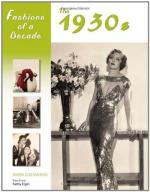|
This section contains 249 words (approx. 1 page at 300 words per page) |

|
Most teachers' organizations originally kept their distance from the organized-labor movement and stayed aloof from affiliated political causes, such as women's suffrage. Teachers usually thought of themselves as professionals, not employees, and were reluctant to unionize. The Depression, however, changed this stance. Memberships in teachers' unions skyrocketed. AFT membership quadrupled, and the group added thirty-three college locals to its complement of publicschool guilds. Teachers' unions became more militant and politically active. Unemployed teachers formed their own organization, the Unemployed Teachers Association (UTA), to secure back pay and other benefits from school boards. The Chicago AFT agitated for progressive political causes such as the graduated income tax, unemployment insurance, the planning of public works, and a shorter workweek. In 1934, led by Raymond Lowry, the Toledo AFT searched the city tax records and broadcast over local radio stations the information that, while poorer families had paid their...
|
This section contains 249 words (approx. 1 page at 300 words per page) |

|




